Carrying the Burden: Labor Rights and Civic Responsibilities in the Memphis Sanitation Strike
The Strike
Beginnings:
The deaths of Robert Walker and Echol Cole ignited the Memphis Sanitation Strike, with over 1,300 sanitation workers beginning their strike on February 11, 1968. The workers demanded that their union be recognized, improved working conditions, fair wages, and acknowledgement of their humanity.
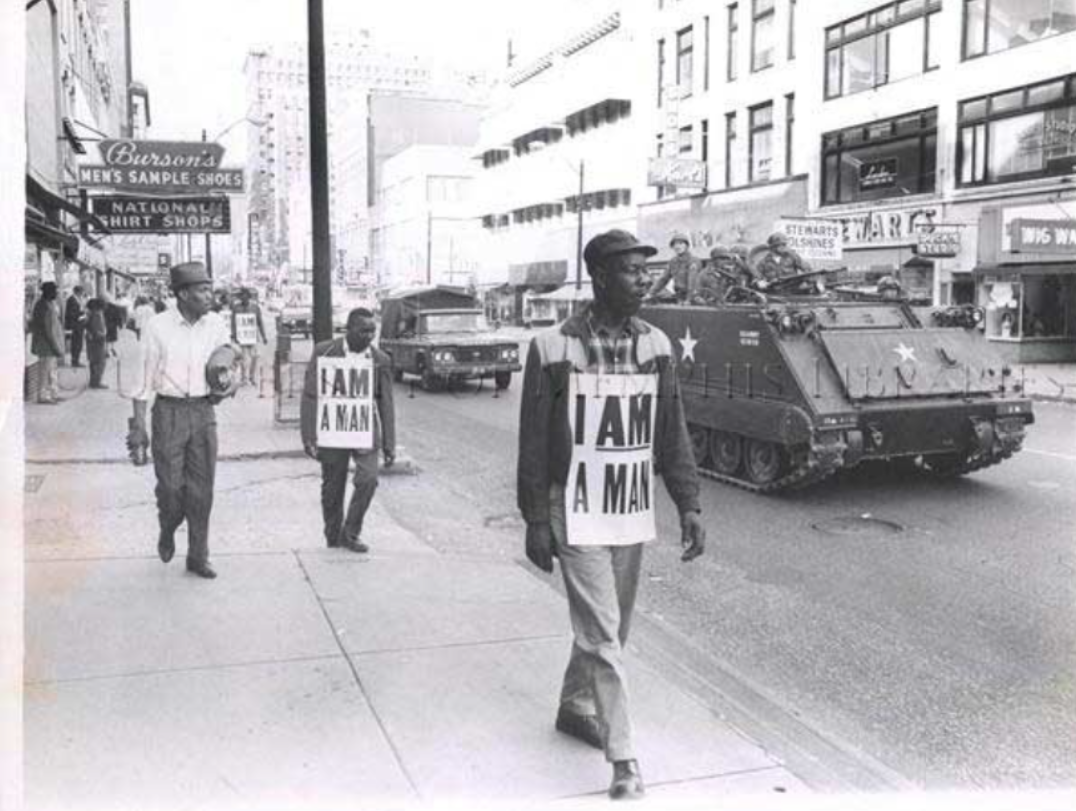
Memphis Press Scimitar. "Marchers with "I AM A MAN" sign, Memphis, 1968." 1968-03. https://digitalcommons.memphis.edu/speccoll-swstrike/21
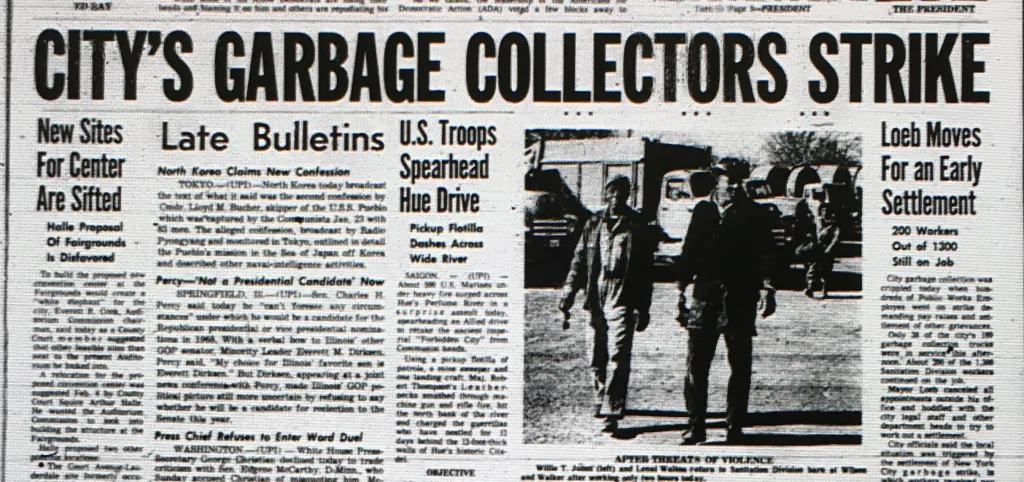
“City Collectors Strike.” Memphis Press Scimitar. February 12, 1968: 1. Storyboard Memphis. Web.
Their slogan, "I AM A MAN," was a badge of their struggle for dignity and respect, and it called national attention to labor and civil rights. This slogan appealed to the broader struggle of African Americans who were confronting racial injustice and economic inequality.
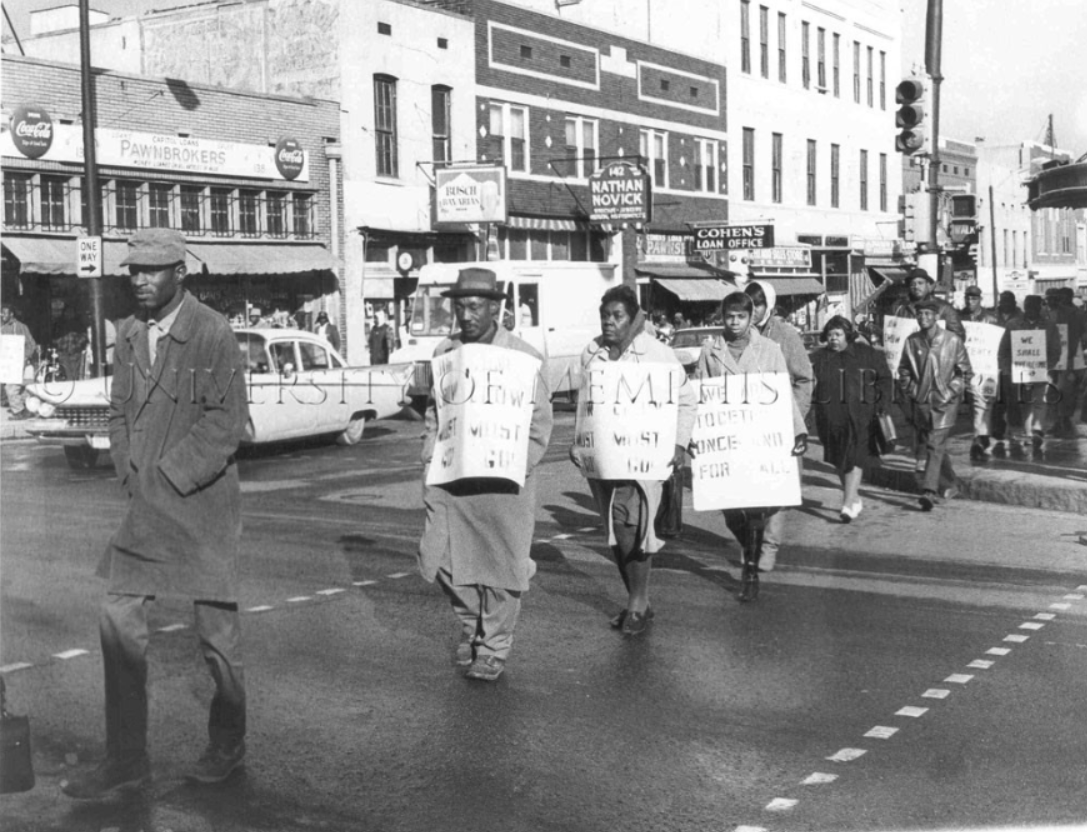
Memphis Press Scimitar. "Striking Memphis sanitation workers protest, 1968." 1968-02. https://digitalcommons.memphis.edu/speccoll-swstrike/92/.
ABC News. “Memphis March Honors MLK,” April 8, 1968. https://www.youtube.com/watch?v=Ya2ooRFWZkk.
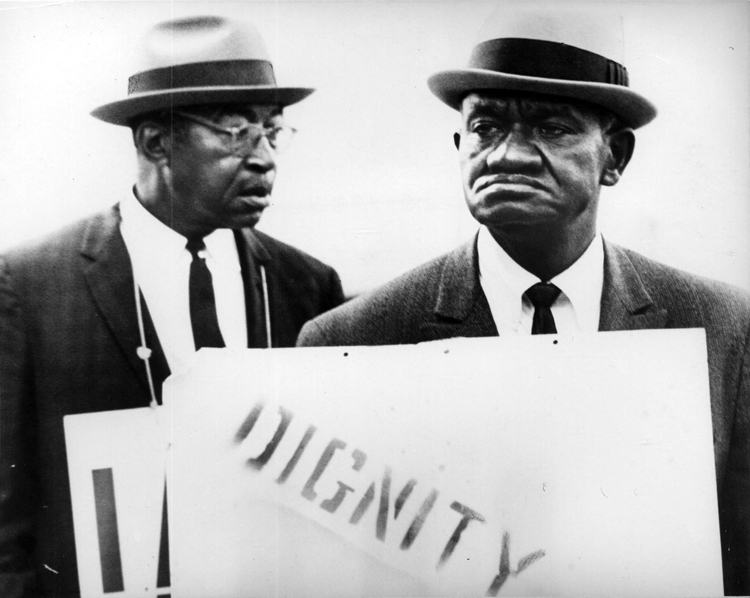
Copley, Richard L. Dignity sought in Memphis. Photograph. I AM A MAN. Memphis, 1968. Memphis. https://projects.lib.wayne.edu/iamaman/items/show/148.
Key Figures and Events:
Several important leaders helped the cause of the strike, including Thomas Oliver Jones, the former sanitation worker and Local 1733 president of the American Federation of State, County, and Municipal Employees (AFSCME) who led the charge, organizing meetings and mobilizing the workers. AFSCME President Jerry Wurf demanded the city recognize the union, improve working conditions, and provide fair pay for the workers.
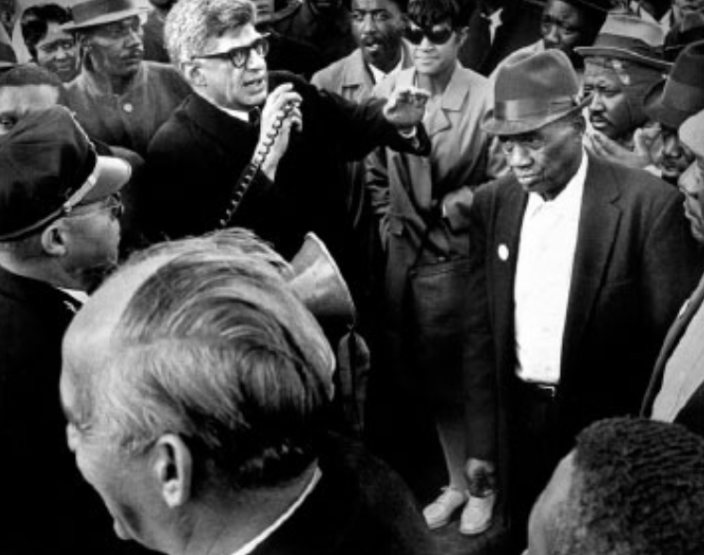
"AFSCME’s international president, Jerry Wurf, organized a march after the city council abruptly shut protestors out of city hall." (Vernon Matthews, Commercial Appeal).
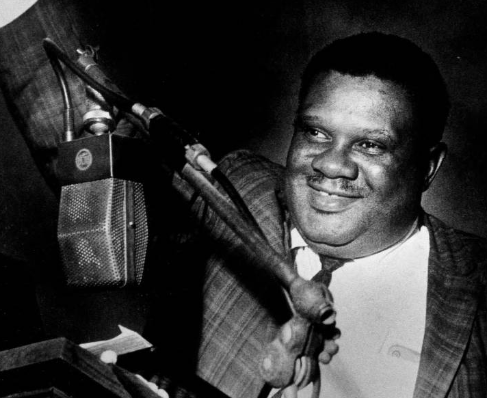
“T.O. Jones.” n.d. Civil Rights Collection- Dig Memphis-the Digital Archive of the Memphis Public Library & Information Center. https://memphislibrary.contentdm.oclc.org/digital/collection/p13039coll2/id/82/.
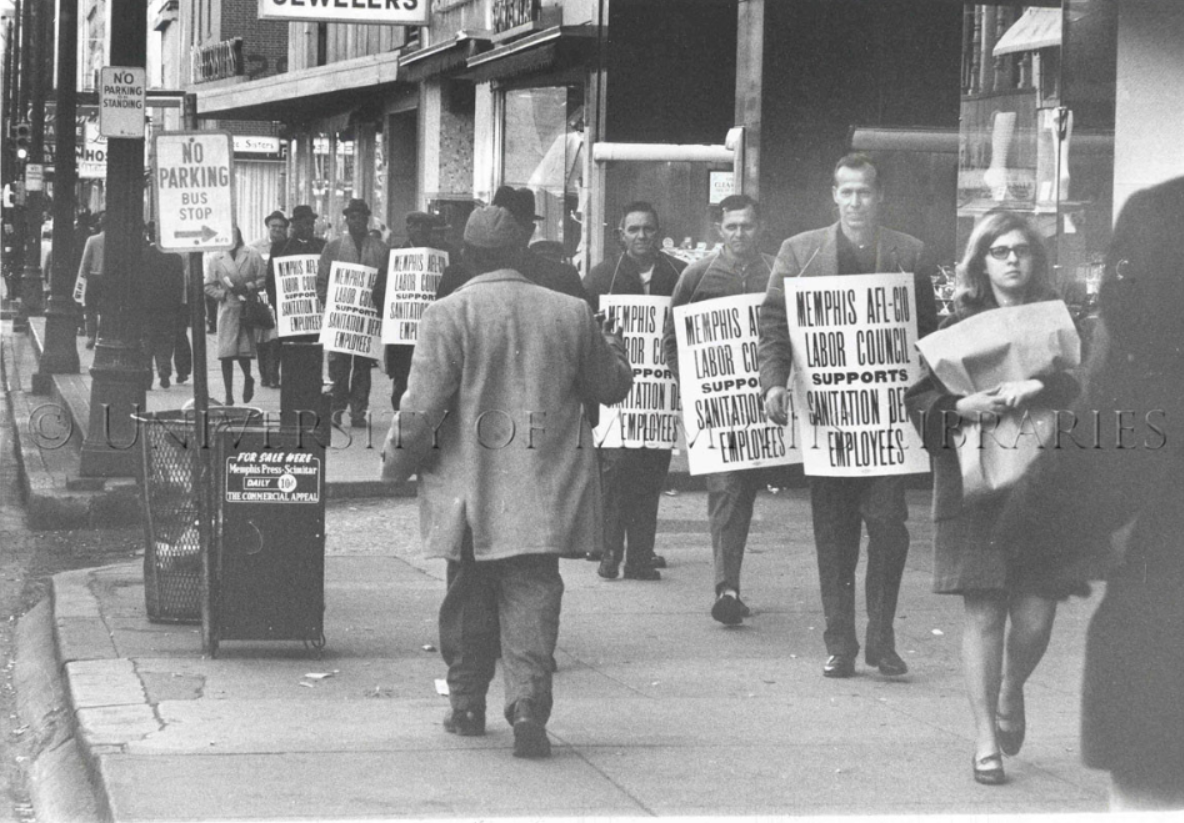
Memphis press scimitar. "AFL-CIO supporters of striking Memphis sanitation workers, 1968." 1968-03. https://digitalcommons.memphis.edu/speccoll-swstrike/77/.
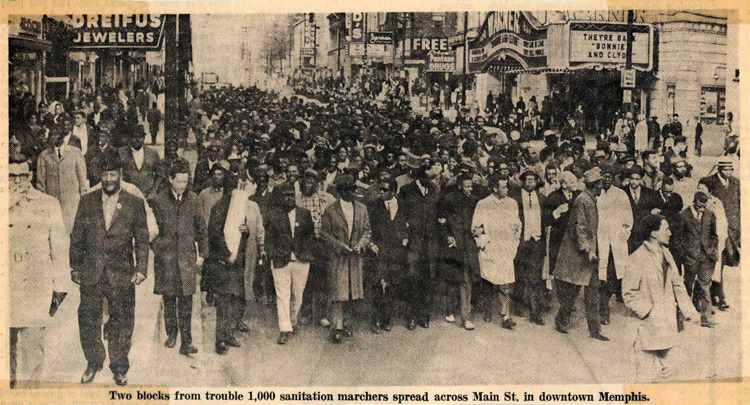
1000 sanitation workers march. Photograph. I AM A MAN. Memphis, 1968. https://projects.lib.wayne.edu/iamaman/items/show/161.
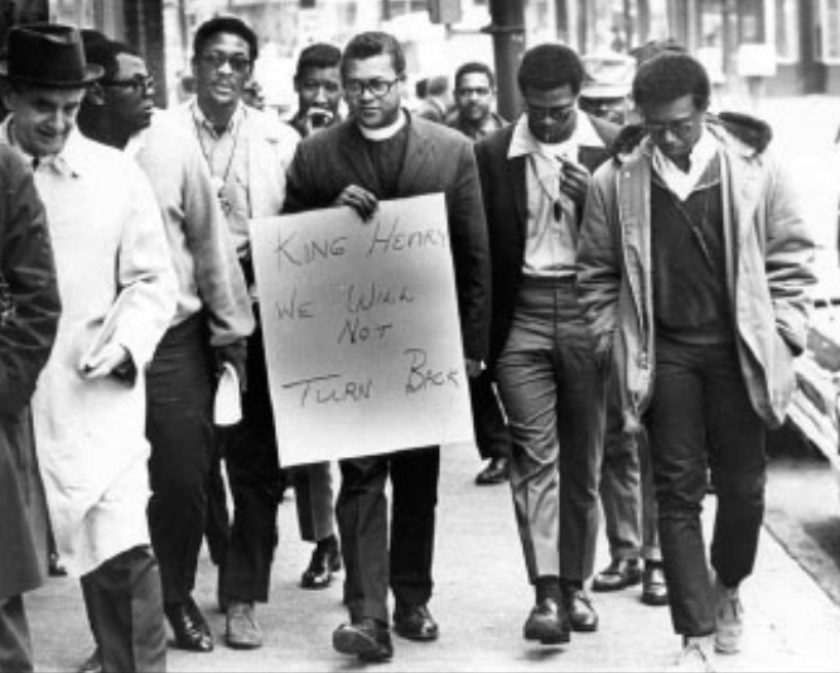
”Reverend James Lawson(holding sign), shown here with young people and white AFSCME organizer Peter J. Ciampa, led the strike strategy committee. (William Leaptrott Mississippi Valley Collection).”
"No matter how you dress it up in terms of whether or not a union can organize, it's still racism. For at the heart of racism, is the idea that a MAN is not a MAN." Reverend James Lawson, 1968
King, being very involved in the Poor People's Campaign, saw the strike as an integral part of his larger fight for economic justice and civil rights.
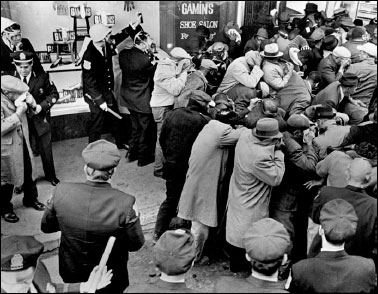
"Police attacked with mace, a chemical designed for use in war, outraging civil rights and labor supporters. (Commercial Appeal)"
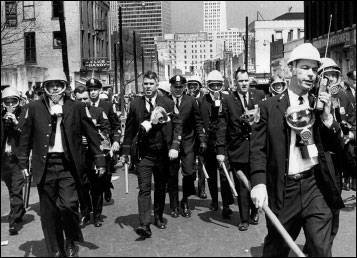
"Police blocked the way, as riots broke out behind King and James Lawson removed him from the march. (Mississippi Valley Collection)."
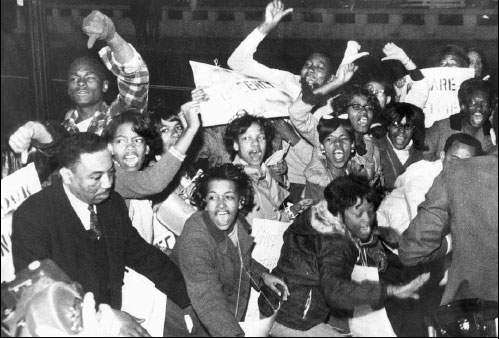
"That day, police arrested 117 protestors, who walked to jail surrounded by singing and chanting black students. (James R. Reid, Mississippi Valley Collection). "
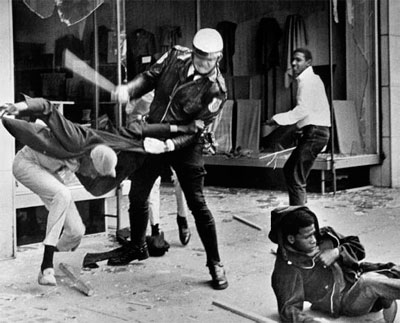
“Police attacked looters and marchers indiscriminately. Police killed Larry Payne (standing right) that afternoon. (Jack Thronell, Associated Press Wide World Photos).”
In the aftermath, King delivered his famous “I’ve Been to the Mountaintop” speech, which emphasized the intersection of economic justice and civil rights, clarifying that the fight for racial equality was inseparable from the fight for workers’ rights.
A number of national civil rights leaders, such as James Lawson, a reverend and Community on the Move for Equality (COME) leader, demonstrated their solidarity by mobilizing the local campaign and invited Dr. Martin Luther King Jr. to Memphis to raise national recognition of the strike.
"The Memphis sanitation division drew heavily on this poor county for workers who they thought would put in long, hard hours without protest." Michael K. Honey, University of Washington, Going Down Jericho Road, 2007
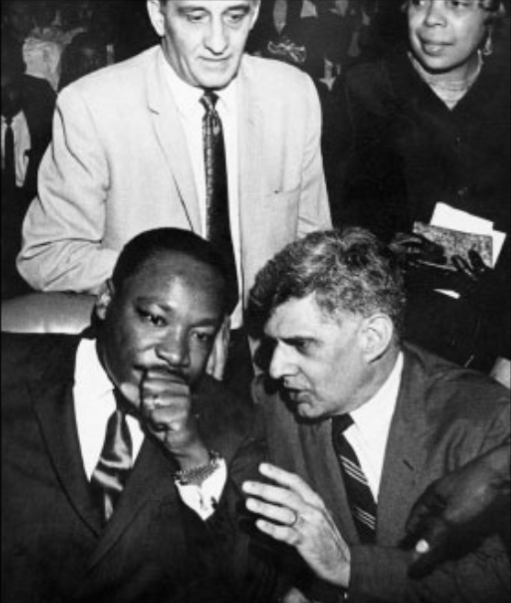
“King is shown here on March 18, conferring with Jerry Wurf at a packed rally at Mason Temple. Behind them are AFSCME’s P. J. Ciampa and strike supporter Cornelia Crenshaw. (Copyright Richard L.Copley, Reuther Archives)”
The sanitation workers' struggle became a model for the structural neglect of Black workers and utilized the event as a focal point to draw attention to racial bias as well as economic inequalities that plagued America. Dr. King's organization brought national attention to the struggle. On March 28, 1968, he led a march in Memphis in support of the workers. Unfortunately, violence broke out during the march, ultimately highlighting the strong racial tension in the city.
"We’ve got some difficult days ahead. But it really doesn’t matter with me now, because I’ve been to the mountaintop … I’ve seen the Promised Land. I may not get there with you. But I want you to know tonight, that we, as a people, will get to the Promised Land"- I've Been to the Mountaintop, Martin Luther King Jr.
ABC News. “Memphis March Honors MLK,” April 8, 1968. https://www.youtube.com/watch?v=Ya2ooRFWZkk.